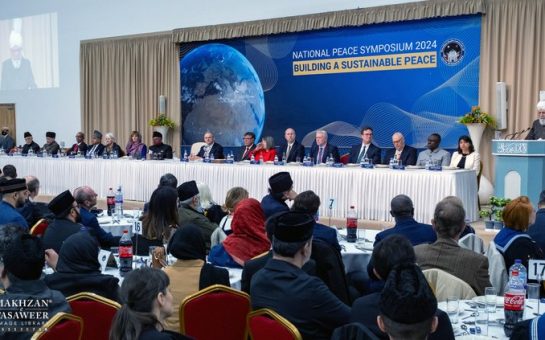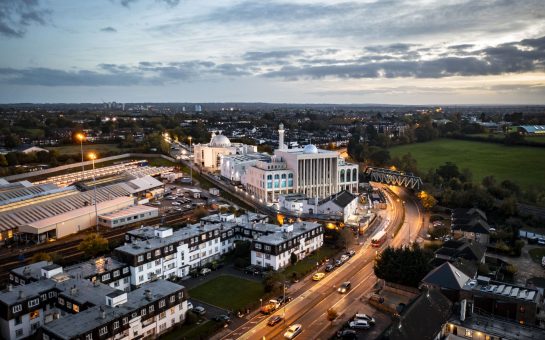A long-standing colleague of the Ahmadiyya Peace Prize winner Dr Leonid Roshal hailed his impact on the world.
Angelina Alekseeva collected the award at last weekend’s Peace Symposium at the Baitul Futuh Mosque in Morden on behalf of Dr Roshal, a leading paediatric surgeon who has treated children at disaster sites around the world.
The 68-year-old, who works with Dr. Roshal at the Clinical and Research Institute of Urgent Paediatric Surgery and Trauma in Moscow, said his guiding principle was that children should be treated by paediatric surgeons.
“The tradition was, and in many cases remains now, that at disaster sites, when there are children victims, they are given medical aid by adult specialists,” she said.
When treating earthquake victims in Armenia in 1988, Dr Roshal aimed to change this practice. The evidence for increasing the involvement of paediatric surgeons is compelling.
“As experience has shown, there are considerable lower mortality and disability rates and fewer amputations in children [when they are overseen by paediatricians].
“When our team was in Haiti in 2010 following a huge earthquake, they worked there for one month and saved 500 limbs in children. For each child, each saved limb, it’s very important,” she added.
Dr Roshal’s team seek consent with the relevant embassy before heading to a disaster site to administer aid and tend to prioritise missions which involve a large number of children. This was certainly the case in Haiti when a school collapsed following the earthquake, injuring hundreds of pupils.
Adult surgeons often resort to performing amputations, desperate to save the lives of young victims. However, Mrs Alekseeva questioned the wisdom of this approach for growing children.
She continued: “If he has, for example, fractures in his zones of growth, how will they develop after that?
“Most adult specialists do not know, so they prefer to make amputations and for them, it’s easier, to save a life. But what would be the quality of this life?”
Mrs Alekseeva’s brief is wide-ranging and she plays a crucial role in assisting Dr. Roshal in his work, helping with translations and correspondence with foreign colleagues. She also plays a key research role.
“I help him know worldwide information and he has a good, strong team of young specialists who also search for scientific research.
“Roshal knows how to develop medicine and which modern technologies to use,” she said.
The recent poisoning of Sergei Skripal in Salisbury has seen tensions escalate between Russia and the UK, but Mrs Aleksheeva believes Dr Roshal’s work transcends those divisions.
“Dr Roshal’s guiding idea is to help children injured, regardless of religious or political views of their parents,” said Mrs Alekseeva.
“Of course, he stands for peace and against wars and conflicts, but his first idea is to help children.”


